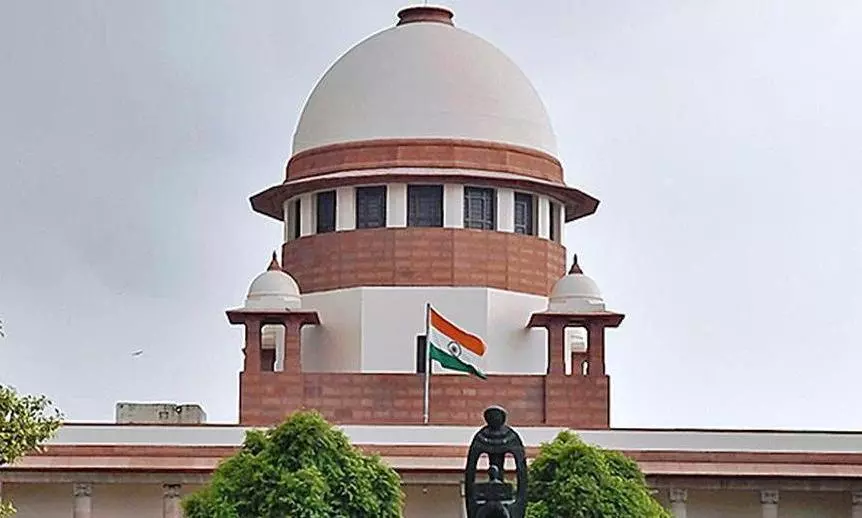
CPI(M) moves SC against pleas challenging Places of Worship Act
text_fieldsNew Delhi: When the Supreme Court has listed to hear a clutch of pleas that challenge the constitutional validity of the Places of Worship Act, 1991, for December 12th, the Communist Party of India (Marxist) and a Maharashtra MLA moved the top court against the mentioned pleas. The petitioners argued that challenges to Places of Worship (Special Provisions Act) 1991 protected the public order, fraternity, unity and secularism in the nation, PTI reported.
A three-judge special bench of Chief Justice Sanjiv Khanna and Justices Sanjay Kumar and KV Viswanathan is expected to hear the matter on December 12 at around 3.30 pm.
The CPI (M) filed the petition through politburo member Prakash Karat and said, "The party is interested in upholding constitutional fraternity and also secularism, equality, and the rule of law, which are principles enshrined in the Indian Constitution. The applicant seeks intervention in this matter to highlight the constitutional and societal importance of the Act, fearing that tinkering with it would harm India's communal harmony and secular fabric."
The CPI(M)'s plea said the law enacted in 1991 ensured that governance was forward-looking and not anchored in revisiting historical grievances.
"The Act embodied this principle by prohibiting the alteration of religious places of worship as they stood on 15 August 1947. It prevents historical wrongs from being addressed by breaching the rule of law or urging the Courts to do so. It thus safeguards the country against religious strife and ensures adherence to constitutional morality," the plea argued.
It added that in the three succeeding decades, despite the governments having full parliamentary majorities, there was no effort to amend or abrogate the Act.
"It is submitted that these proceedings are an indirect attempt to amend or abrogate the Act through judicial means where Parliamentary intention appears to be the contrary," it said.
The party said the filing of suits challenging the nature of mosques and dargahs (shrines) was a direct attack on the pluralistic lifestyle witnessed for generations and a gross attempt at writing off the hard work of the nation's forefathers in ensuring that independent India remained an everlasting mixture of cultures, races, religions and languages.
"That the alarming proliferation of litigation challenging the religious character of various places of worship across the country, including mosques and dargahs, intends to destabilise the legislative intent and constitutional mandate enshrined in the Act. This relentless wave of litigation threatens to undermine the principles of secularism and the rule of law, which are foundational to the basic structure of the Constitution," it said.
Similarly, MLA Jitendra Satish Awhad, who was recently elected from the Mumbra-Kalwa seat in Maharashtra on an NCP (Sharadchandra Pawar) ticket, sought to intervene in this matter to emphasise the constitutional and societal significance of the Act. He feared any alterations to it could jeopardise India's communal harmony and secular fabric, thereby threatening the sovereignty and integrity of the nation.
Awhad's plea stated the places of worship law's provisions were closely tied to the larger goal of maintaining national unity and integrity and added, "the Act's provisions, while limiting changes to certain religious sites, are directly connected to the broader aim of ensuring that no single group's actions at these sites can ignite or fuel communal tensions, thus protecting the social fabric of the nation."
The MLA further argued that the Act aimed to uphold secularism and public order and prevent misuse of retrospective legal claims. It also bars any retrospective alteration to the religious character of places of worship, freezing their status as of August 15, 1947.
The 1991 law prohibits the conversion of any place of worship and provides for the maintenance of the religious character of any place of worship as it existed on August 15, 1947. The law, however, made the only exception during the dispute over the Ram Janmabhoomi-Babri Masjid in Ayodhya.
The top court has already seized about six petitions, including the PILs filed by lawyer Ashwini Upadhyay and former Rajya Sabha MP Subramanian Swamy, against certain provisions of the law.





